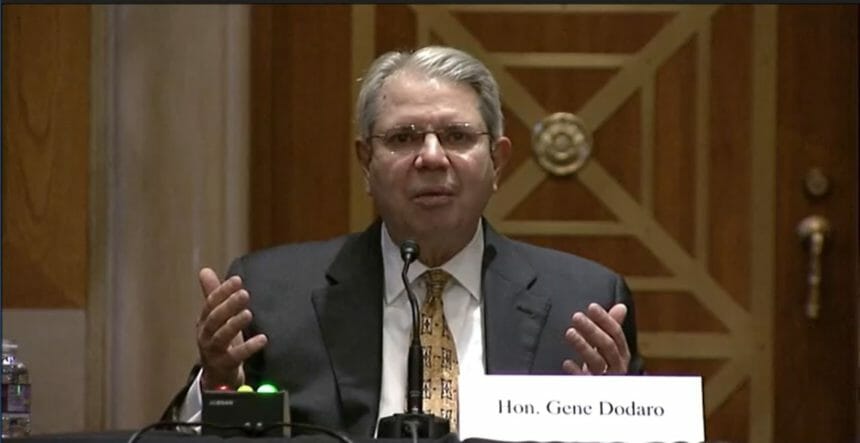
COVID-19 and the resulting economic downturn will affect the retirement security of older workers because they have less time to recover from any effect on their savings, housing and investments, according to the U.S. Government Accountability Office.
GAO Comptroller General Gene L. Dodaro testified Thursday before the U.S. Senate Special Committee on Aging on “Women and Retirement: Unique Challenges and Opportunities to Pave a Brighter Future.” He shared information from a July report on women’s retirement security, “Retirement Security: Older Women Report Facing a Financially Uncertain Future,” and also commented on pandemic-related effects on everyone’s ability to save money.
In a low interest rate environment, he said, it becomes “more challenging to accumulate savings, especially for those close to retirement.” Women face unique challenges, including longer lifespan, lower earnings and assuming the role of primary caregiver, he added.
“In general, women are more likely to take time away from the workforce to raise children or even grandchildren,” said Sen. Susan Collins (R-ME), chairman of the committee. “They are more likely to care for an ill spouse or a parent. Time out of the workforce results in lower Social Security benefits, smaller pensions and less in defined contribution plan savings.”
A woman’s higher life expectancy translates into higher expected healthcare cost and a greater risk of outliving savings, she added.
The July report provided perspectives from 190 older women from around the country — generally aged 70 or more years — in 14 focus groups about financial security. Women in all of those groups said they felt “uncertainty or fear” about meeting future expenses, according to the report.
Data from the Federal Reserve’s 2016 Survey of Consumer Finances found that less than half of households with women aged 70 or older had a high level of confidence in their retirement security.
According to the Census Bureau’s 2019 Current Population Survey, approximately 19.7 million women fall into the 70+ age range, and about 11% of those women remain in the workforce. The GAO found that women earning the median salary at age 60 would have to work an additional 10 years to match a man’s median career earnings.
The challenges the women shared in the focus groups included navigating rising costs of prescription drugs, housing and other necessities, as well as encountering limited opportunities for financial education. The reasons they gave for feeling financially insecure included the inability to pay for essential expenses, debt and having little to no savings. They also said they had to work or rely on public assistance for housing or food.
“Achieving financial security in retirement is a goal that every American — woman or man — should be able to achieve,” said Sen. Bob Casey (D-PA), ranking member of the committee. “Unfortunately, the truth is, while retirement works for some, it continues to allow millions of Americans to fall through the cracks. This is especially true when it comes to women, who continue to have lower average retirement incomes and who are more likely to fall into poverty in old age.”
Among the factors responsible for these disparities, Casey said, are differences in life expectancy, a pay gap, family caregiving responsibilities and lower-than-average Social Security benefits.
“We’ve documented the problems,” Casey said. “We need to take action and address this to ensure all women are able to enjoy retirement on their own terms.”
That action, he added, should include strengthening Social Security and increasing benefits for those most likely to fall into poverty, securing multi-employer pensions and protecting benefits, closing the pay gap for women, and creating permanent paid sick, family and medical leave.
“We should pass a relief bill now, while we are here in Washington, immediately that addresses the long-lasting inequities that have prevented women from being able to maintain their quality of life in retirement,” Casey said. “We must make sure that all Americans are able to achieve the financial security they have earned.”




